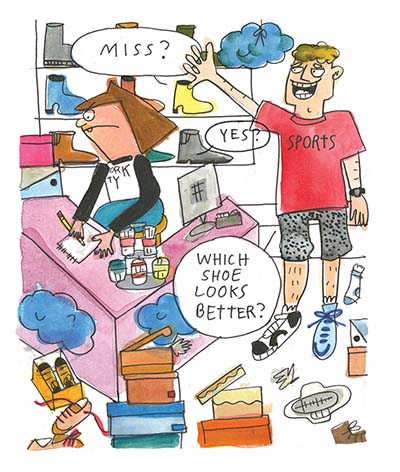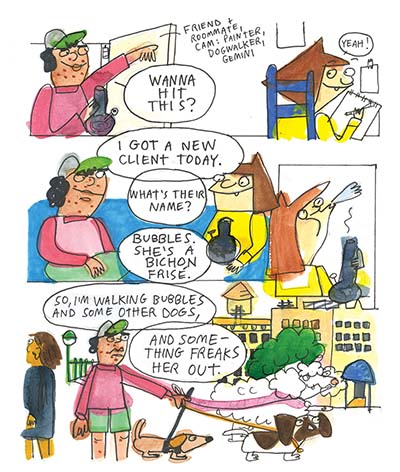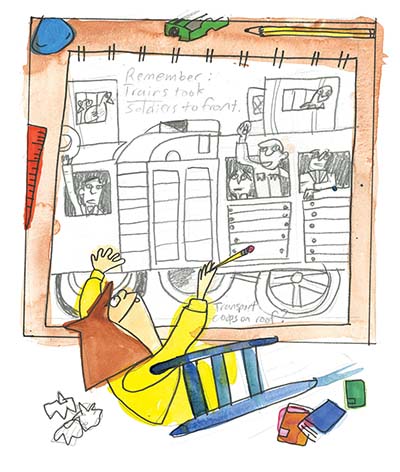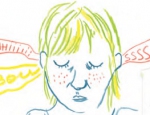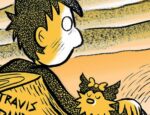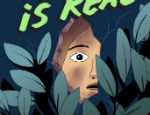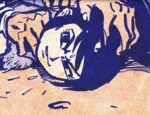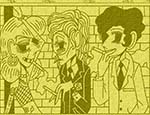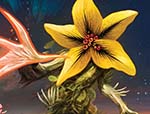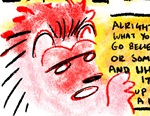There’s a lot going on in Katie Fricas’s debut, for those who take time to stop and check out the proverbial roses. There are little flourishes on every page of Checked Out, seemingly random daubs of colour, and allusions to landmarks spread across New York City that accrue slowly to generate a gentle, yet immersive experience of life in that city. The protagonist is a loveable young woman trying to make sense of love, adulting, and the path she must take to forge her dream of becoming an artist.
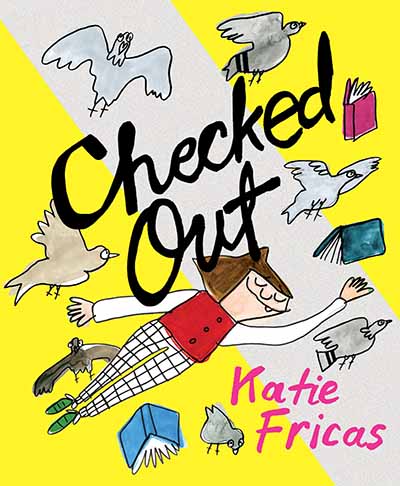
Louise is one of those people who would make any place nicer with her presence. She’s bright but unobtrusive, struggles with some social anxiety, and needs a bit of prodding to reveal layers of her personality. She wants to create a graphic novel about carrier pigeons in World War I but struggles with the process as well as doubts surrounding the veracity of her subject. She has a lot of questions, even if she doesn’t articulate them, and the series of discoveries that lead her to a place of clarity give Checked Out its emotional heft.
This is a New York book, and Fricas’s art reflects the sensory explosion that anyone who has visited the city can identify with. It also intrudes into every part of Louise’s life, from her job at a shoe store to the library that hires her, the people she dates, and the bodegas at every other corner. There is a haphazard quality to the way colour is used, but that is deceptive because the panels end up being greater than the sum of their parts.
The Künstlerroman — or coming-of-age story that documents an artist’s growth to maturity — may be as old as the idea of the novel, which is why the telling of a story makes such a difference. In this, Fricas has an advantage not only by virtue of her medium, but by the lightness of touch with which she introduces her reader to Louise’s world. There is humour here, and self-doubt, even a dating app for women called Gandr (which doesn’t exist, but really should), all of which create a relatable character.
Another interesting thing is how Fricas manages relationships in the lives of everyone who interacts with Louise. She does this with deft strokes, rather than elaborate plots, and one is left wondering at the backstory that compels Louise’s friend Wanda to make out with her whenever her husband isn’t around. Her friends also offer intriguing glimpses of their own private dramas, creating the illusion that they could all spin off into their own stories if Fricas ever felt the desire to do so.
Louise’s story doesn’t unfold in a linear manner. Soon after she is hired to work at a library, we go back to her childhood, and memories of visiting her smaller, hometown library. These switches between past and present occur at random, which makes sense given that what we have access to is the crowded space inside someone’s mind; all Fricas is doing is depicting how we think at any given time.
There’s a twist in the tale, one that makes Louise re-evaluate everything she has been working on, while simultaneously setting her free. Even without that denouement though, this is a book to savour and read again. It’s a great debut.
Katie Fricas (W/A) • Drawn & Quarterly, $29.95
Review by Lindsay Pereira





